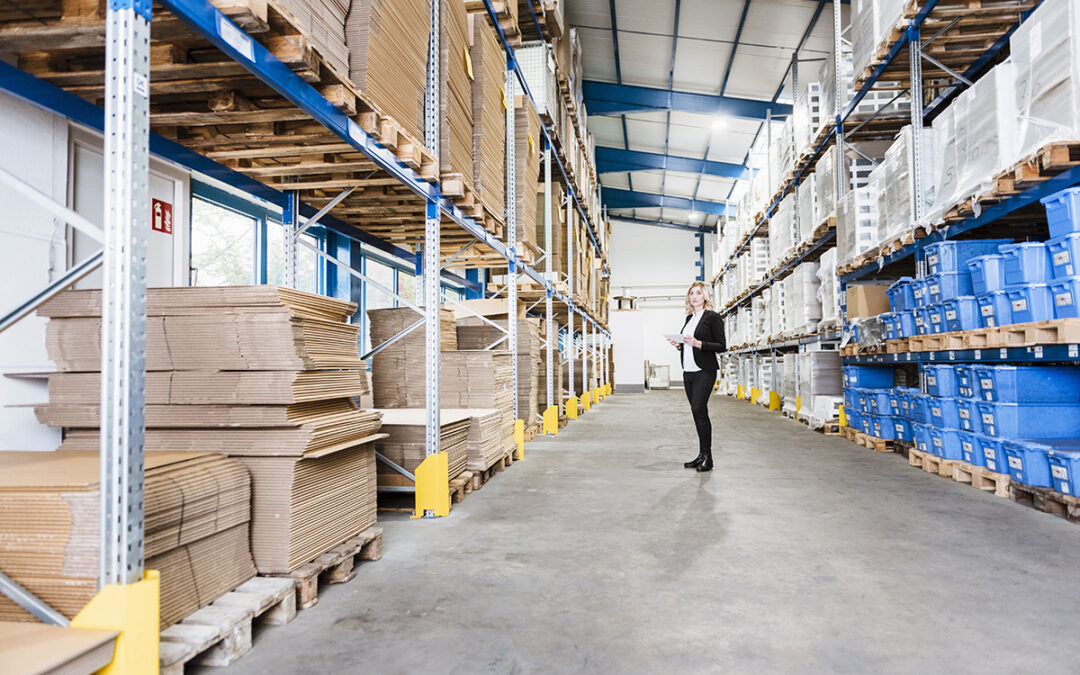Creating a Safe and Slip-Resistant Environment with Epoxy Floors in Warehouses
Choosing the right flooring for residential and commercial space is crucial because it not only adds to its beauty but also instills a safe surrounding. A common risk with flooring is the slip and trip when wet or dry because of the floor type and structure. Especially in commercial places like warehouses, with heavy foot traffic, constant movement of goods, and high-impact areas, slippery surfaces are detrimental for workers as they can cause fatal injuries. The goal of every organization is to create a safe working environment for everyone, including prioritizing safe flooring. The non-slip floor solution warehouses must consider is epoxy flooring cementitious urethane, which makes the place aesthetic and guarantees safety against slip and trip when adding non-slip additives.
This post is dedicated to the role of warehouse epoxy floors and what makes the 718 HB HG Epoxy, our revolutionary product for warehouses, a safe and slip-resistant environment.
What are Epoxy Floors?
Epoxy floors are smooth and durable synthetic coating applied over concrete flooring for a seamless and glossy finish. Composed of resins and hardeners, epoxy floors are strong and durable surfaces appropriate for residential and industrial spaces. Because of its robust nature and ability to withstand heavy foot traffic, machinery, and rigorous pressure, the 718 HB HG is the ultimate commercial epoxy flooring solution. The best thing about this product is its versatile properties, which allow the addition of non-slip additives, making it a worthy investment.
What are Urethane Floors?
Urethane floor or polyurethane floors are a flooring type used primarily in industrial and commercial settings and are composed of polyurethane resins, sand, and other additives. The solution is applied in the form of liquid and then cured to form a durable and seamless surface.
The benefits of our 619 StarKrete urethane flooring include being essentially odorless, low maintenance, capable of withstanding heavy forklift traffic, resistant to chemicals and abrasion, VOC compliant, CA 10350 Air Quality compliant, meeting USDA, FDA, and CFIA, as well as OSHA standards, and offering a seamless flooring system, makes them a popular choice for environments requiring a long-lasting flooring solution.
Why are Slippery Floors Risky in Warehouses?
Bureau of Labor Statistics 2022 occupation injuries data states that fatal injuries from falls, slips and workplace trips have increased by 1.8% in 2021. OSHA, General Duty Clause, Section 5(a)(1) demands employers to provide their employees a workplace free from recognized hazards that are causing or are likely to cause death or serious physical harm. Workplace injuries invite legal implications for employers and lower operational productivity.
Since dealing with heavy machines and the transportation of goods is a daily routine in warehouses, slippery surfaces may lead to severe injuries like fractures, lacerations, head injuries, and even death. Making sure that the warehouse floors are not slippery, even when it’s wet, is extremely important in mitigating the risks of workplace accidents.
Benefits of Urethane and Epoxy Floors in Warehouse
Slip Resistance
The glossy finish of epoxy floors might give the impression of slippery flooring, but it allows the blend of slip-resistant textures into the epoxy resin to provide additional grip on the floor, making it non-slippery even when the floor is wet. This feature of epoxy floors ensures a safe and slip-resistant environment in warehouses.
As we had mentioned above, the quality of 718 HB HG Epoxy epoxy floors is non-slippery. However, if the glossy finish of the epoxy floor, the chances of it being slippery when in wet or moist environments should also be considered for the warehouse. For that, the slip-resistant property of epoxy floors can be enhanced by adding texture to the walking surface for better grip. Mixing anti-slip additives and aggregates such as sand, quartz, flake, silica, or aluminum oxide into the epoxy resin gives it an anti-skid finish, making warehouses safer against slip.
Durability
The strength of epoxy and urethane is their ability to efficiently handle heavy weight and movement of workers and machinery. In addition to resisting weight, they are also built strong to bear the pressure of heavy objects and don’t crack easily, maintaining their integrity.
Versatility
The 718 HB HG Epoxy and 619 StarKrete can be customized in terms of color, texture, pattern, and finish according to one’s preference. You can select from various epoxy pigments or pre-tinted epoxy resins to blend with the aesthetic of your space. Likewise, you can leverage the color and patterns to form a clear demarcation of the different spaces within the warehouse to aid in navigation.
Ease of Maintenance
The epoxy floor application method and the seamless nature of the liquid create a crack-free, even, and clean surface. Since it doesn’t have grout lines and crevices, cleaning is more manageable, leaving no dirt or debris stuck in the flooring.
The 718 HB HG epoxy resin is designed to be low-maintenance flooring. With high chemical resistance, the floors can be cleaned with strong acid or caustic cleaner or AmeriCote’s Super Cleaner for a spotless surface without the risk of corrosion. For large commercial spaces, consider the walk-behind SC450 floor scrubber for maximum efficiency and sanitization.
In addition, this product is FDA/USDA accepted for incidental food contact, making it the best fit for warehouse flooring.
Count on AmeriCote’s Epoxy Flooring Expertise
Don’t compromise your and your employees’ safety. Still not sure what flooring system is best for your specific environment? Contact us today or call 336-706-6775 for a free quote to transform your warehouse into a safe and slip-resistant environment.

